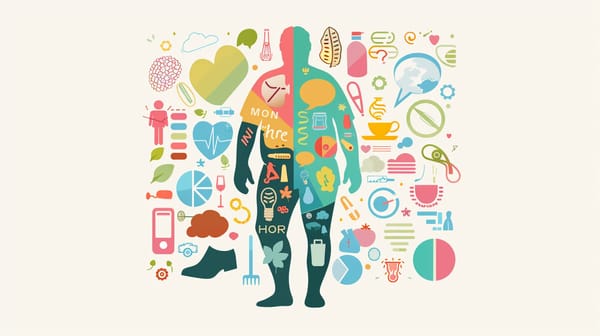Unlocking Weight Loss Success for Night Owls

Understanding Your Body's Internal Clock
Your circadian rhythm, also known as your body's internal clock, plays a crucial role in regulating various functions such as sleep-wake cycles, body temperature, hormone levels, and digestion. However, recent research suggests that your circadian rhythm may also have a significant impact on your weight loss journey, with early birds potentially having an advantage over night owls.
Studies have found that middle-aged individuals who identify as morning people tend to engage in more physical activity compared to those who identify as night owls. On average, early birds get 60-90 minutes more movement per day than their night owl counterparts, who tend to lead a more sedentary lifestyle. This is noteworthy because a sedentary lifestyle is often associated with being overweight or obese, putting night owls at a higher risk of weight gain over time.
Dietary Differences Between Early Birds and Night Owls
In addition to physical activity levels, research published in the journal Obesity has revealed dietary differences between early birds and night owls. The study found that night owls tend to consume less nutrient-dense foods compared to early birds. Specifically, night owls were found to consume more sugar in the morning hours and more calories, sugar, and saturated fat during nighttime.
Interestingly, the total daily calorie intake between the two groups was similar overall. However, night owls were observed to have more eating occasions on weekends compared to early birds. Based on these findings, researchers suggest that night owls may have a higher risk of obesity and metabolic disturbances, although more research is needed to confirm this correlation.
The Impact of Sleep Deprivation on Weight Loss
Sleep deprivation is another factor that can impact weight loss efforts, and night owls are particularly susceptible to this issue. Research has shown that some night owls may not get enough sleep during the week and try to catch up on rest during weekends. This is problematic because sleep deprivation has been found to increase appetite, elevate hunger hormones, lower hormones associated with feeling full, and decrease metabolism.
Consequently, any chronotype that experiences sleep deprivation may face these challenges, but night owls are more likely to suffer from lack of sleep. This is concerning because insufficient sleep has been linked to poor food choices, which can contribute to weight gain.
Embracing Your Chronotype for Weight Loss Success
While it may not be possible to change your chronotype through willpower alone, as it is largely dictated by heredity, night owls can still adopt healthy habits to support their weight loss goals. By prioritizing physical activity, being mindful of food choices, and ensuring adequate sleep, night owls can effectively manage their weight while adhering to their preferred waking and sleeping hours.
To increase physical activity, night owls can pay attention to how often they sit and make an effort to go for walks or engage in other forms of exercise. Planning ahead by packing a gym bag and preparing post-workout meals can help night owls stay on track with their fitness goals. Additionally, being aware of the characteristics of one's chronotype can motivate night owls to work harder at ensuring regular exercise and minimizing excessive sitting.
When it comes to diet, night owls should be mindful of their eating habits, particularly their tendency to consume more sugar and high-fat foods at night. Keeping an accurate food log using an app like MyFitnessPal can help night owls identify trends and stay accountable. It's also essential to listen to hunger cues and distinguish between true hunger and emotional eating.
Finally, prioritizing sleep is crucial for weight loss success. Night owls should aim for 7-9 hours of quality sleep each night, even if they don't feel tired before midnight. Establishing a relaxing pre-bed routine and minimizing exposure to blue light from electronic devices can help improve sleep quality. Additionally, streamlining morning activities through meal prepping or adjusting work schedules can allow night owls to get the rest they need without sacrificing productivity.
By understanding their unique circadian rhythm and implementing these strategies, night owls can unlock the path to successful weight loss and improved overall health.




